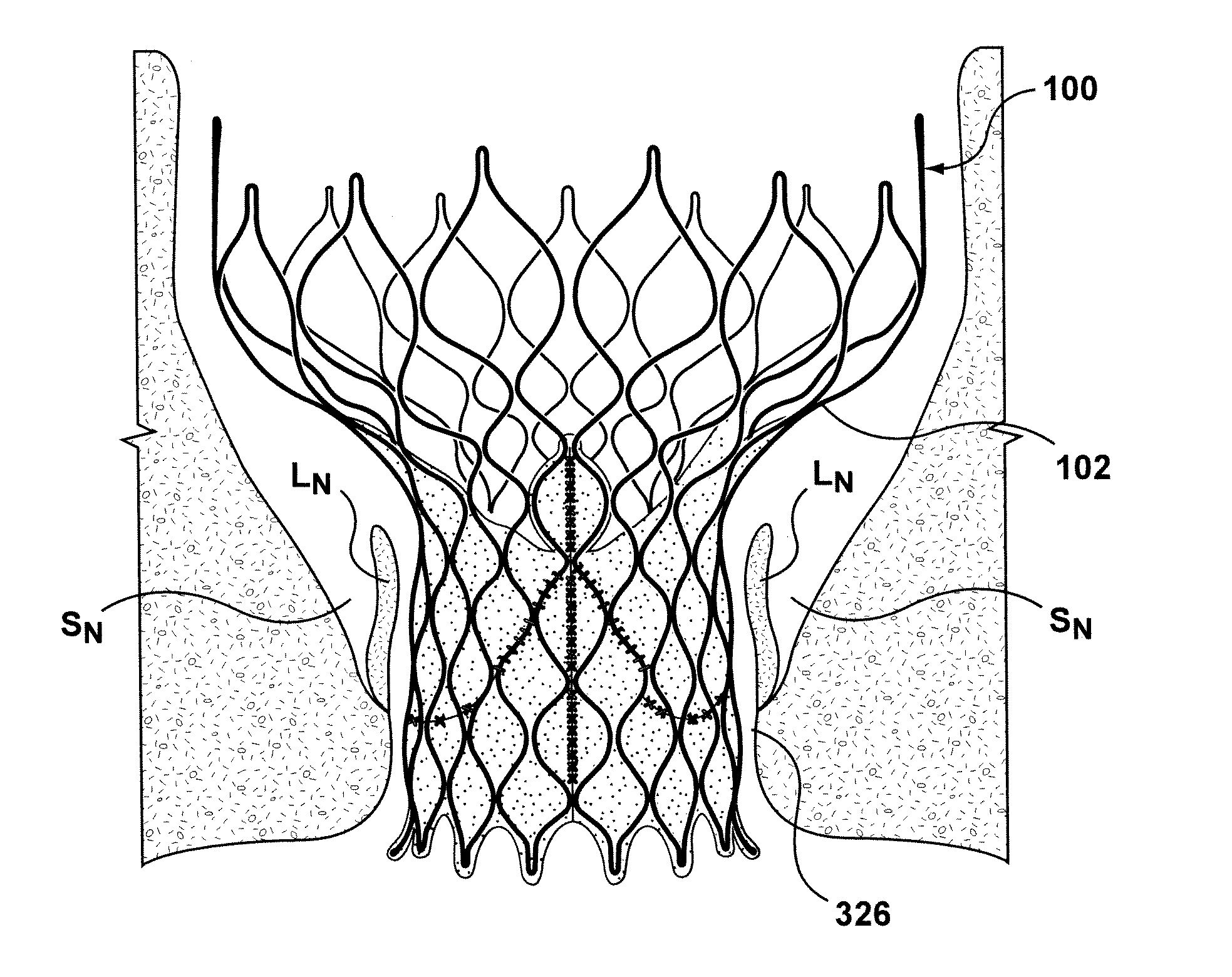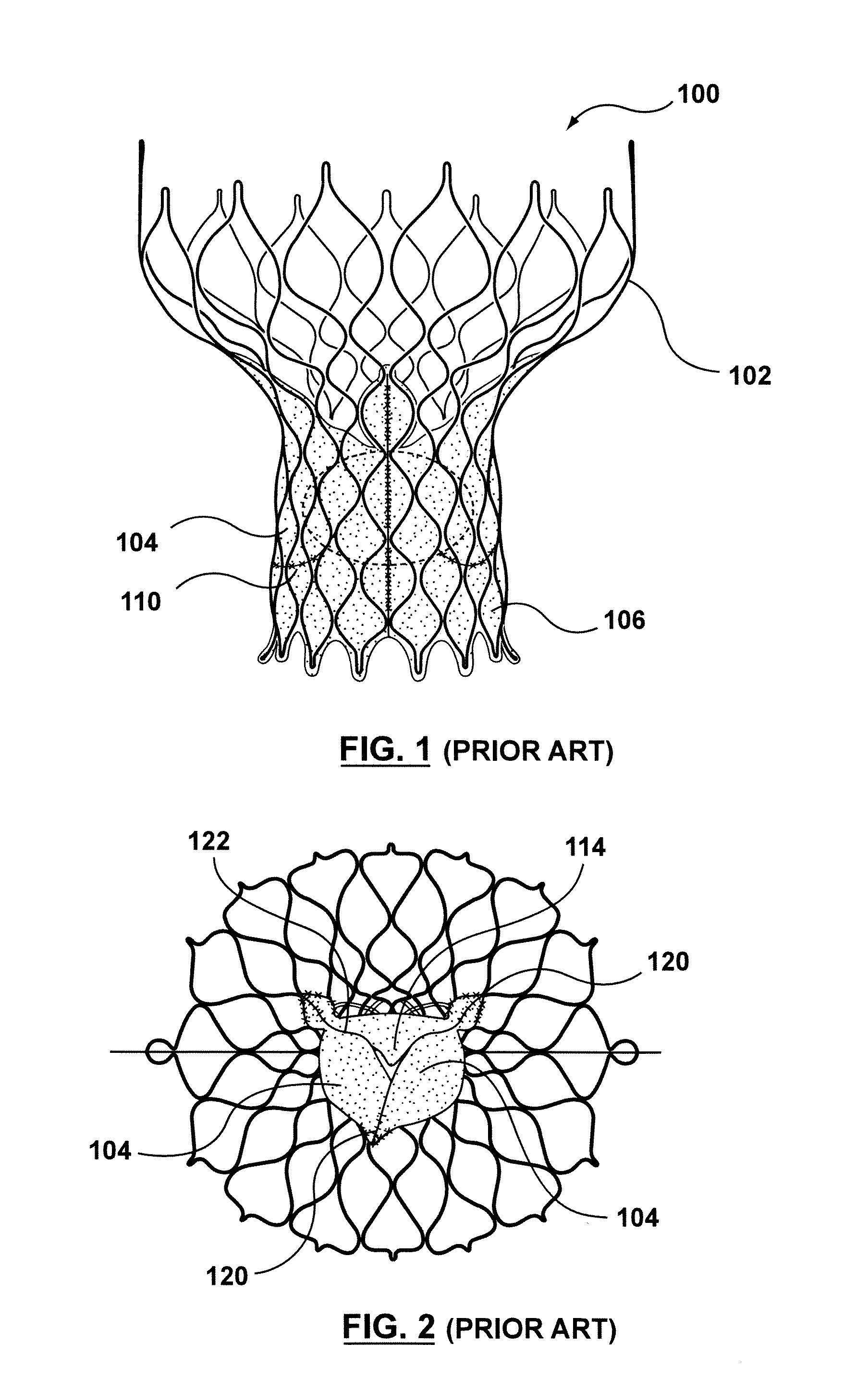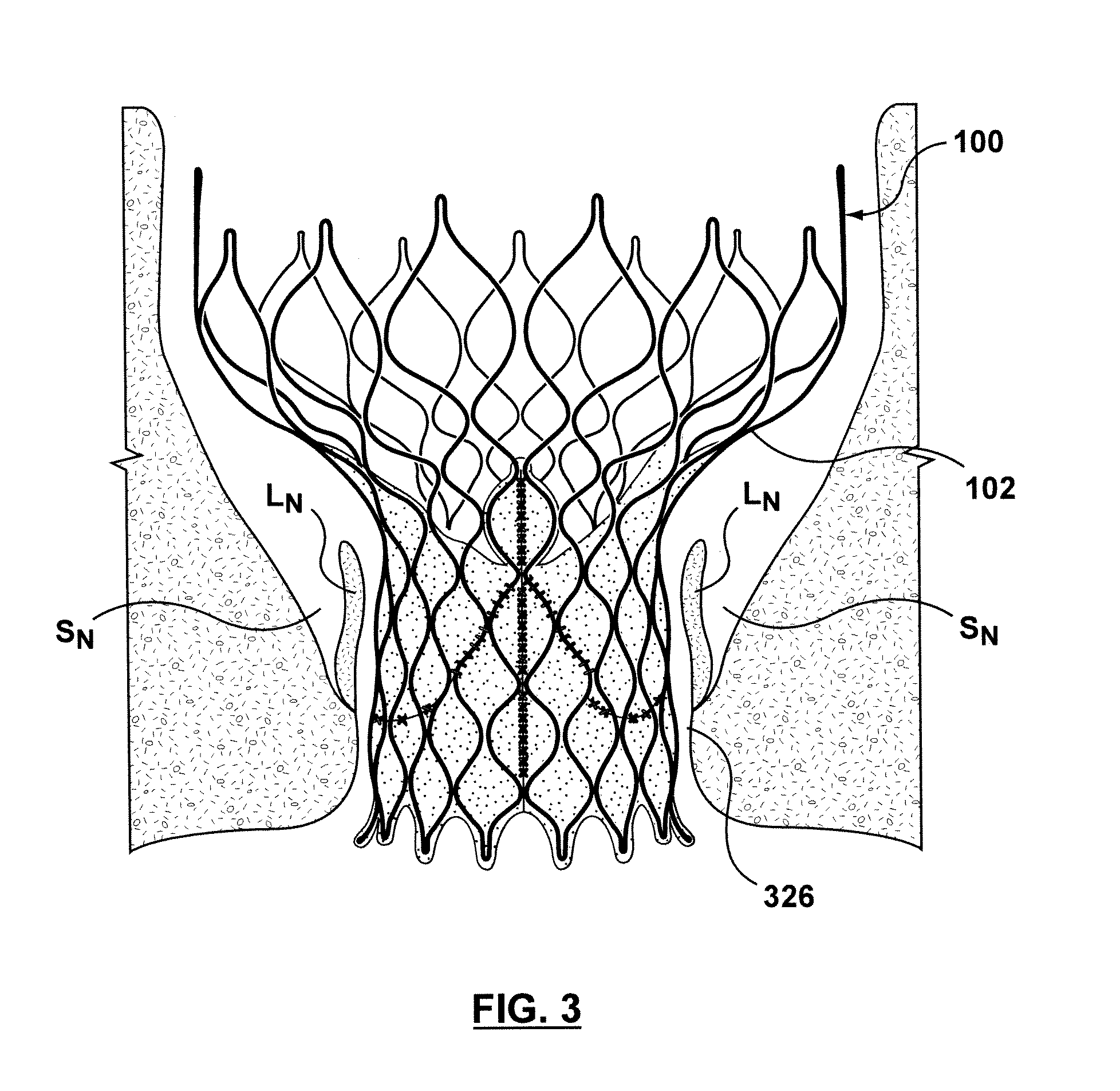Transcatheter valve prosthesis having an external skirt for sealing and preventing paravalvular leakage
a transcatheter valve and prosthesis technology, applied in the field of transcatheter valve prosthesis, can solve the problems of valve not opening properly, insufficiency or regurgitation, stenosis and insufficiency, etc., and achieve the effect of low profil
- Summary
- Abstract
- Description
- Claims
- Application Information
AI Technical Summary
Benefits of technology
Problems solved by technology
Method used
Image
Examples
Embodiment Construction
[0026]Specific embodiments of the present invention are now described with reference to the figures, wherein like reference numbers indicate identical or functionally similar elements. If utilized herein, the terms “distal” or “distally” refer to a position or in a direction away from the heart and the terms “proximal” and “proximally” refer to a position near or in a direction toward the heart. The following detailed description is merely exemplary in nature and is not intended to limit the invention or the application and uses of the invention. Although the description of the invention is in the context of treatment of heart valves, the invention may also be used where it is deemed useful in other valved intraluminal sites that are not in the heart. For example, the present invention may be applied to venous valves as well. Furthermore, there is no intention to be bound by any expressed or implied theory presented in the preceding technical field, background, brief summary or the ...
PUM
 Login to View More
Login to View More Abstract
Description
Claims
Application Information
 Login to View More
Login to View More - R&D
- Intellectual Property
- Life Sciences
- Materials
- Tech Scout
- Unparalleled Data Quality
- Higher Quality Content
- 60% Fewer Hallucinations
Browse by: Latest US Patents, China's latest patents, Technical Efficacy Thesaurus, Application Domain, Technology Topic, Popular Technical Reports.
© 2025 PatSnap. All rights reserved.Legal|Privacy policy|Modern Slavery Act Transparency Statement|Sitemap|About US| Contact US: help@patsnap.com



